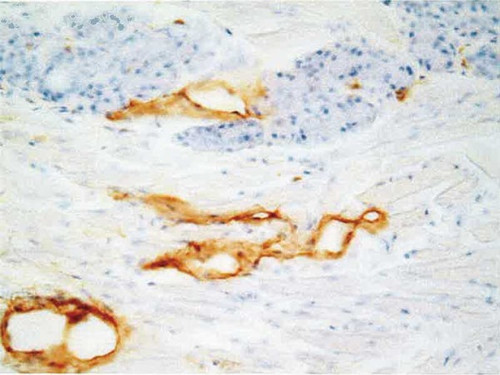Glucagon is a peptide hormone with a molecular weight of 3,485, consisting of 29 amino acid residues, secreted by pancreatic alpha cells. It acts on the liver to stimulate the production and release of glucose through glycogenolysis and glycogenesis, thereby raising blood glucose. Together with insulin (Insulin), it is involved in the regulation of glucose homeostasis.
Proglucagon, the precursor of glucagon, undergoes different processing depending on the cell in which it is produced, giving rise to a variety of related peptides. This antibody recognises the C-terminus of glucagon and specifically detects glucagon produced by alpha cells.
This antibody specifically reacts to Glucagon in Human and Mouse and it can be used for Immunohistochemistry. For research use only, not for use in diagnostic procedures.
- application:
- IHC
- Catalog number:
- 10505
- size:
- 5 µg
- Protocol:
- Datasheet:
- concentration:
- Please see datasheet
- MSDS:
- notes:
- For research use only, not for use in diagnostic procedures.
The datasheet for this product (see above) is intended to serve as an example only. Please refer to the datasheet provided with the antibody for precise details. - Species:
- Human, Mouse
- immunogen:
- Synthetic peptide for glucagon (23-29) (VQWLMNT)
- Host:
- Mouse-Rat hybridoma (X63-Ag8.653×Wister Rat Lymph cells)
- clone:
- 52A1A
- isotype:
- IgG2a
- Purification Method:
- Affinity purified with Protein G
- Specificity:
- Glucagon C-terminal Specific
- formulation:
- Lyophilized product from 1% BSA in PBS containing 0.05% NaN3
- Pamphlet:








